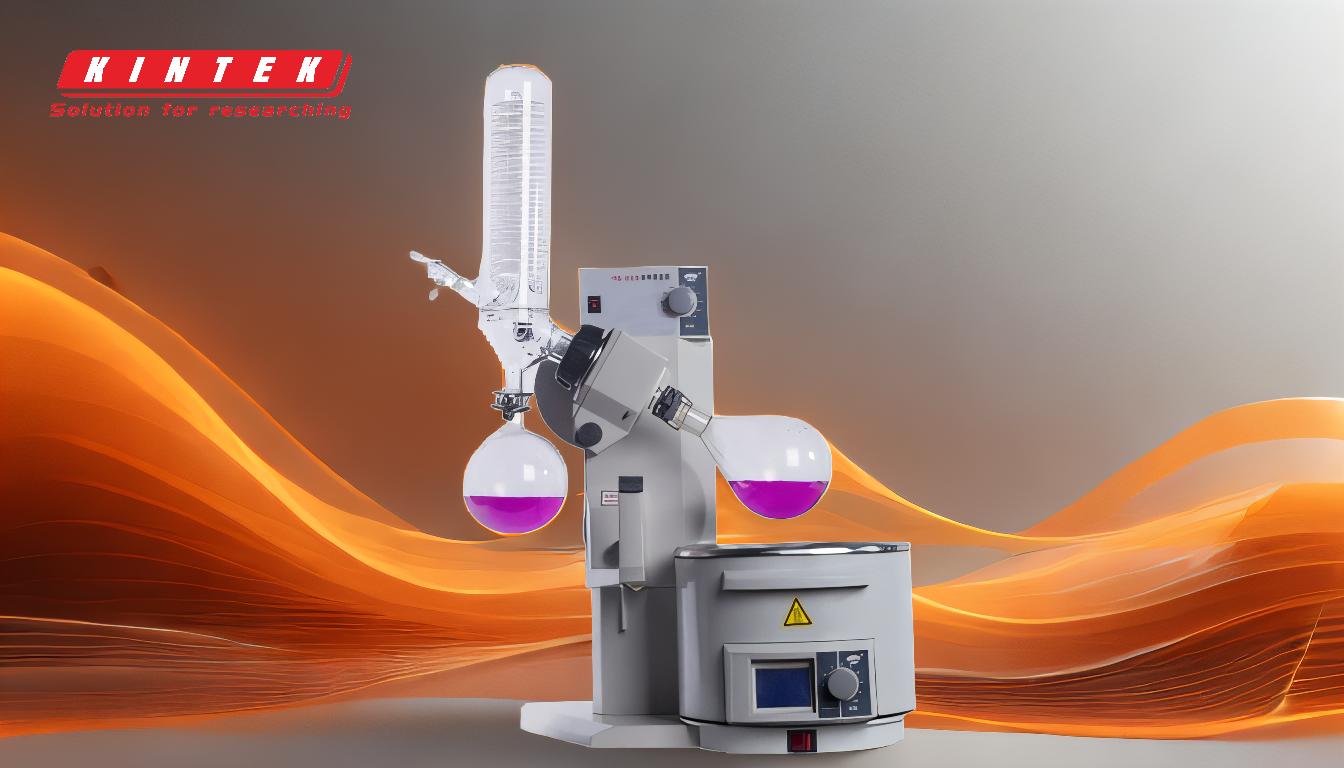A rotary evaporator, or rotavap, is a critical piece of laboratory equipment designed to efficiently remove solvents from samples through evaporation. Its justification lies in its ability to combine precise engineering, vacuum and pressure control, and rotational motion to enhance evaporation efficiency. This makes it the fastest and most effective method for removing low-boiling solvents from mixtures, which is essential for isolating desired compounds after processes like chromatography or extraction. Additionally, its versatility allows it to be used in various applications such as concentration, crystallization, drying, and solvent recovery across industries like pharmaceuticals, chemicals, and food production. Its ability to operate under reduced pressure makes it particularly useful for handling volatile solvents, though it requires additional measures for high-boiling solvents like water.
Key Points Explained:

-
Efficient Solvent Removal:
- Rotary evaporators are specifically designed to remove solvents from samples quickly and efficiently. This is achieved by combining three key mechanisms:
- Reduced Pressure: Lowering the pressure in the system reduces the boiling point of the solvent, allowing it to evaporate at lower temperatures, which minimizes the risk of degrading heat-sensitive compounds.
- Rotation: The rotating flask increases the surface area of the sample, promoting faster and more uniform evaporation.
- Heating: Controlled heating further accelerates the evaporation process without overheating the sample.
- Rotary evaporators are specifically designed to remove solvents from samples quickly and efficiently. This is achieved by combining three key mechanisms:
-
Versatility in Applications:
- Rotary evaporators are used for a wide range of laboratory and industrial processes, including:
- Evaporation and Concentration: Removing solvents to concentrate solutions.
- Crystallization: Facilitating the formation of crystals by removing excess solvent.
- Drying: Eliminating residual solvents from samples.
- Separation and Solvent Recovery: Isolating desired compounds and recovering solvents for reuse.
- This versatility makes the rotavap indispensable in fields such as pharmaceuticals, chemistry, biology, and food production.
- Rotary evaporators are used for a wide range of laboratory and industrial processes, including:
-
Handling Low-Boiling Solvents:
- Rotary evaporators are particularly effective for solvents with relatively low boiling points, such as ethyl acetate (EtOAc) and n-hexane. These solvents evaporate quickly under reduced pressure, making the process more efficient than evaporation at atmospheric pressure.
- For high-boiling solvents like water or dimethylformamide (DMF), additional measures such as a high-performance vacuum system or pre-treatment with drying agents (e.g., magnesium sulphate) are required.
-
Time and Energy Efficiency:
- Compared to traditional evaporation methods, rotary evaporators are significantly faster and more energy-efficient. The combination of reduced pressure, rotation, and heating ensures that solvents are removed in a fraction of the time, saving both time and resources in laboratory workflows.
-
Precision and Control:
- The precise engineering of rotary evaporators allows for fine-tuned control over parameters such as temperature, pressure, and rotation speed. This level of control is crucial for handling sensitive compounds and ensuring consistent results.
-
Wide Industry Adoption:
- Rotary evaporators are widely used in research, development, and production settings due to their reliability and adaptability. They are particularly valuable in small-scale and pilot experiments, where efficiency and precision are paramount.
-
Limitations and Considerations:
- While rotary evaporators excel at handling low-boiling solvents, they are less effective for high-boiling solvents without additional equipment or modifications. This limitation must be considered when planning experiments or processes involving such solvents.
In summary, the justification for using a rotary evaporator lies in its unmatched efficiency, precision, and versatility for solvent removal and related processes. Its ability to handle a wide range of solvents and applications makes it an essential tool in modern laboratories and industries.
Summary Table:
| Feature | Benefit |
|---|---|
| Efficient Solvent Removal | Combines reduced pressure, rotation, and heating for fast evaporation. |
| Versatility | Used for concentration, crystallization, drying, and solvent recovery. |
| Low-Boiling Solvent Handling | Ideal for solvents like ethyl acetate and n-hexane. |
| Time and Energy Savings | Faster and more energy-efficient than traditional methods. |
| Precision and Control | Fine-tuned control over temperature, pressure, and rotation speed. |
| Wide Industry Adoption | Essential in pharmaceuticals, chemicals, food production, and more. |
| Limitations | Requires additional measures for high-boiling solvents like water. |
Ready to enhance your lab's efficiency? Contact us today to find the perfect rotary evaporator for your needs!












